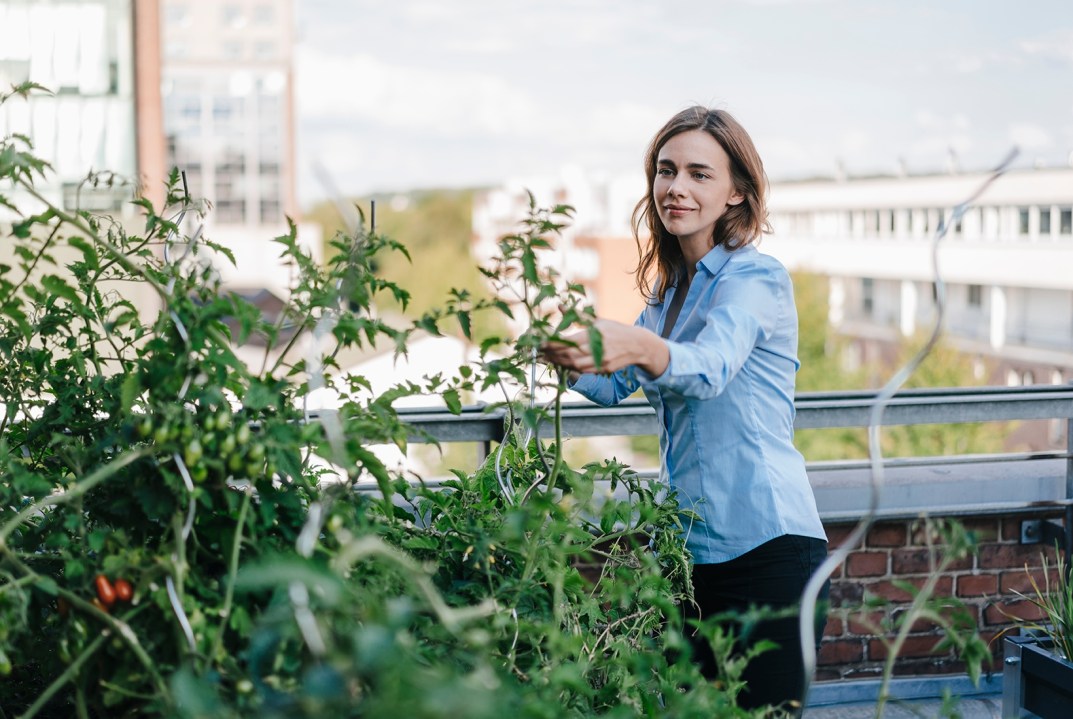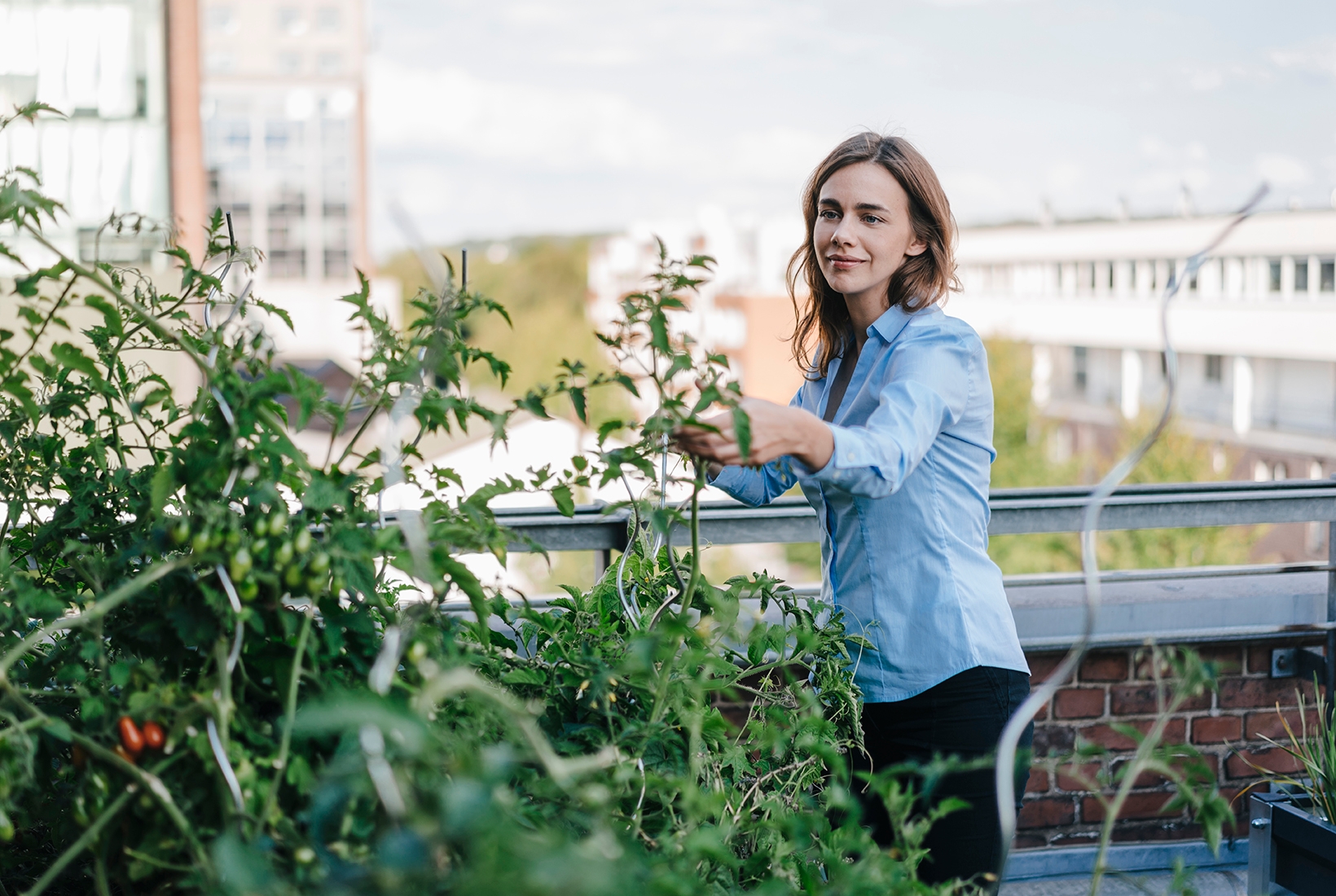Viewed from a purely private garden perspective, this has been a ver mirabilis. The blossom has been wonderful and long-lasting, the sun has shone on the daffodils and tulips, and there has been enough moisture in the ground for impressive growth in trees, shrubs and vegetables. Thanks to lockdown and all its confinements, I have enjoyed an intensity of engagement with my garden I’ve rarely experienced since the days when I was a young, mustard-keen apprentice gardener. I feel as if I have watched every leaf unfurl, every flower open, every bird swoop across the lawn. Spring gardening, with its pleasant, mindful monotony of pricking out seedlings and pulling up speedwell, has soothed my nerves, consoled my sadness, calmed my fears, and brought a welcome sense of proportion. There is a lot to be said for indifferent, imperturbable nature.
None of this has come as a surprise to me, or anyone else I know who puts their hands in the soil. After all, people have believed for centuries that gardening is a therapeutic endeavour, beneficial and healing to body, mind and spirit. That is why there are dozens of charities running worthwhile gardening projects and programmes to help the disabled, traumatised, depressed, drug-addicted, abused, excluded, unemployed, homeless, imprisoned, sick, injured, dying, bereaved or just plain lost.
Now, thanks to Sue Stuart-Smith and The Well Gardened Mind, we have the intellectual underpinning for our instinctive response. The author is a psychiatrist, psychotherapist and keen gardener, who has spent years investigating why it is that gardening and nature are so good for our mental and physical health. To do this she mixes — sometimes without much preamble — neuroscience, physiology, psychoanalysis and personal anecdote.
Despite some awkward sentences, this is a readable and blessedly comprehensible account which, considering the complexity of much of the subject matter, especially to do with the brain, is an impressive achievement. It contains, au fond, both a very personal and a universal narrative. The author’s grandfather was imprisoned by the Turks at Gallipoli, finally escaped and, after a horrendous 4,000-mile journey, arrived home, suffering from malnutrition.
The way he recovered his physical strength and mental balance was with serious gardening, and she was later a witness to that success. Widening the focus, she writes of the gardens made in Western Front trenches and in Syrian refugee camps. She connects the theoretical to the everyday, with the help of anonymous interviews with prison inmates, community garden leaders, schizophrenics and traumatised veterans throughout the world.
One of her recurring themes is that for almost all our history, humans have been hunter-gatherers, foragers and, at least since the late Paleolithic era, gardeners, and this history has shaped how our brains and psyches function. Moreover, we early acquired an aesthetic sense in our garden-making, as Genesis 2:9 makes abundantly clear. To distract and cloud our brains endlessly, as we do, with a kaleidoscope of screen images, Facebook ‘likes’ and Twitter bitterness is to risk jangled, restless unhappiness and, crucially, a lack of resilience. Slow, peaceful gardening is a powerful antidote. Her conclusions on the baleful effects of urbanisation and human isolation are uncomfortable but, despite all, this is an optimistic book, for she points to solutions as well as problems.
What she writes will resonate with any reader who has tended so much as a windowsill basil plant or suffered pain, loss or disconnection — which is frankly pretty well everybody. For me, the passages with the most impact concern grief. I now accept (although I would have hotly denied it at the time) that my decision to train as a professional gardener — not the most obvious career choice for a Cambridge history graduate — stemmed from a desire to escape the disabling, bottled-up grief I experienced after my mother’s early death. I wished once more to inhabit the summer afternoons of childhood, when I worked companionably alongside her in the garden. Stuart-Smith also lost her father in his forties. As she puts it:
In tending a plot and nurturing and caring for plants, we are constantly faced with disappearance and return. The natural cycles of growth and decay can help us understand and accept that mourning is part of the cycle of life, and that when we can’t mourn it is as if a perpetual winter takes hold of us.
By some strange working of chance, another book on the subject has just been published. Your Wellbeing Garden is a collaboration between Professor Alistair Griffiths, director of science and collections at the RHS, Matt Keightley, a garden designer, and two gardening writers, Annie Gatti and Zia Allaway. In the DK house style of colour pictures and illustrations, small chunks of text and varying fonts, it is well-researched, solidly grounded in the science and focused on providing very practical solutions. Thus one book provides the ‘why’ and the other the ‘how’, and together they have the power to promote a greater public awareness of the importance of gardens and open spaces, and not just during the present emergency. They should be required reading for planners, landscape architects, health professionals and social policy makers — if we are serious about achieving a happier society, that is.







Comments